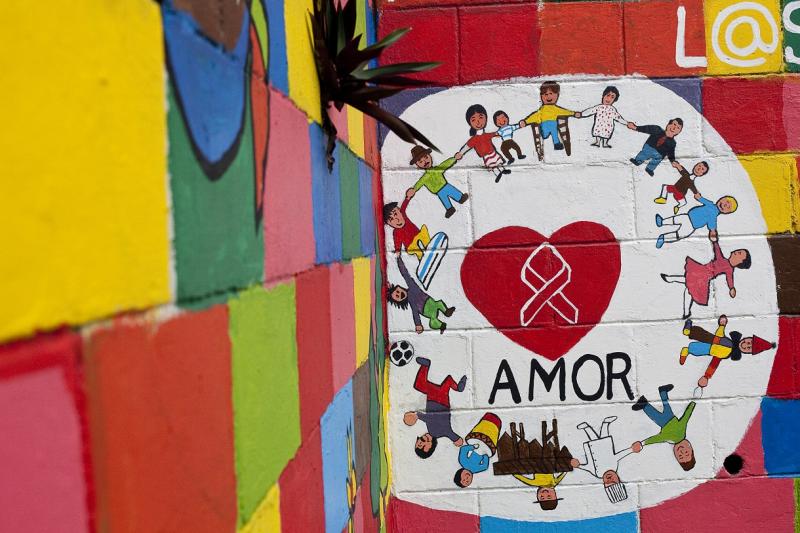Where We Work
See our interactive map


Photo by Trevor Snapp in El Salvador for IntraHealth International.
Health workers battle a pandemic and two hurricanes to get HIV treatment to clients in Central America.
The COVID-19 pandemic has created plenty of barriers for people living with HIV who need to continue their care and treatment. But when hurricanes Eta and Iota hit Central America in November, the barriers multiplied.
Pounding Nicaragua, Honduras, El Salvador, Panama, and Guatemala for days, these two hurricanes brought heavy rains that led to flooding and landslides that devastated communities and affected millions.
In the face of these dual crises, health workers in Central America demonstrated strong leadership and commitment to their clients, using person-centered strategies to continue providing HIV/AIDS services. They knew they needed to maintain direct contact with their clients. They also knew this would be difficult, as the storms forced many to leave their homes.
While work, discrimination, and long distances to health services are usually the reasons people travel to neighboring countries for health care, COVID-19 and the two hurricanes have also influenced many Central Americans’ movements and forced many health facilities to close. Many HIV clients could no longer go to their usual places for care.
"Our objective during COVID-19 is to keep working."
So IntraHealth International's HIV Care and Treatment Project (HCTP) adapted its existing alert system alerTAR, to help find clients on the move and connect them to services no matter where they were. alerTAR is a rapid text messaging system that sends reminders to clients to take their medications, notifies them about upcoming clinic appointments, and generates immediate alerts to health personnel so they respond rapidly to clients who miss appointments or are at risk of stopping antiretroviral therapy (ART). It’s currently used in 34 HIV clinics in Central America.
When hurricanes Eta and Iota uprooted even more HIV-positive clients, IntraHealth used alerTAR to send 900 messages to clients who needed information. In Izabal, Guatemala, for example, they said "If you lost your medicine or have an appointment, come to the clinic or call this number.”
And using alerTAR and SUMEVE—the national HIV monitoring, evaluation, and epidemiological surveillance system in El Salvador—health workers from IntraHealth’s HCTP identified two Guatemalan clients and one Honduran client who normally access HIV services in El Salvador but couldn’t because of COVID-19. The three had shared their information through alerTAR, which helped them connect with health systems in other countries.
Adherence promoters, Beatriz Duque, from the Sonsonate National Hospital in El Salvador, and Pamela Molineros, from the Luis Ángel García Family Clinic of the San Juan de Dios National Hospital in Guatemala, conducted this type of coordination so that their clients could receive counseling and medication where they were.
"As a promoter, I feel satisfied having facilitated the delivery of medicine to a Salvadoran patient who was in Guatemala,” Beatriz says. “Because borders closed, she could not collect her medicine here, but was able to do so in Guatemala."
Juan*, used to get his clinic checkups at the Zacamil National Hospital in El Salvador, where he lived. But when the pandemic spread, he returned home to his native Honduras. Because he had consented to receiving messages through alerTAR, his contact information was on file and he could be linked with the Mario Catarino Hospital there.
"Our objective during this COVID-19 emergency is to keep working,” says Siro Argueta, the project’s country representative in El Salvador, "so that all patients with HIV continue to adhere to their treatment.
December 1 is World AIDS Day and this year we are celebrating the ingenuity and perseverance of health workers during COVID-19 through the PEPFAR theme: Ending the HIV/AIDS Epidemic Through Resilience and Impact.
IntraHealth International’s HIV Care and Treatment Project in El Salvador, Honduras, Panama, and Guatemala, is funded by USAID. It focuses on reaching clients with high-quality, stigma-free services and works together to enroll and retain as many people living with HIV as possible on treatment.
*Names changed to respect confidentiality.
Get the latest updates from the blog and eNews




